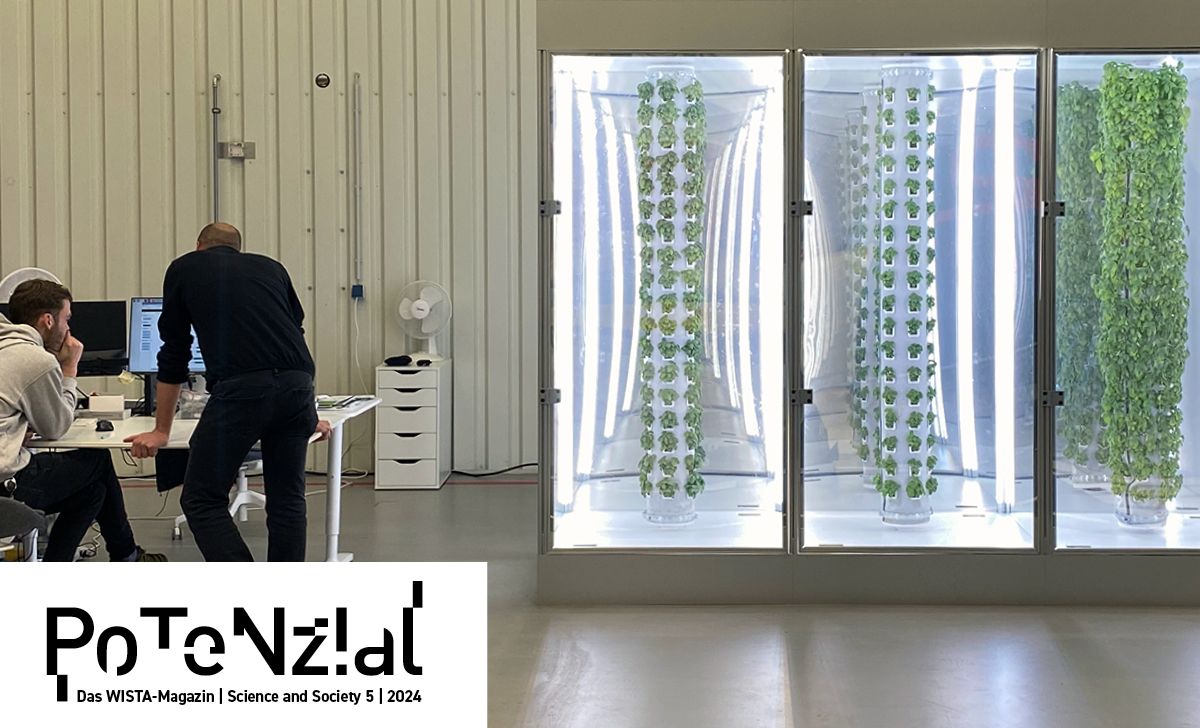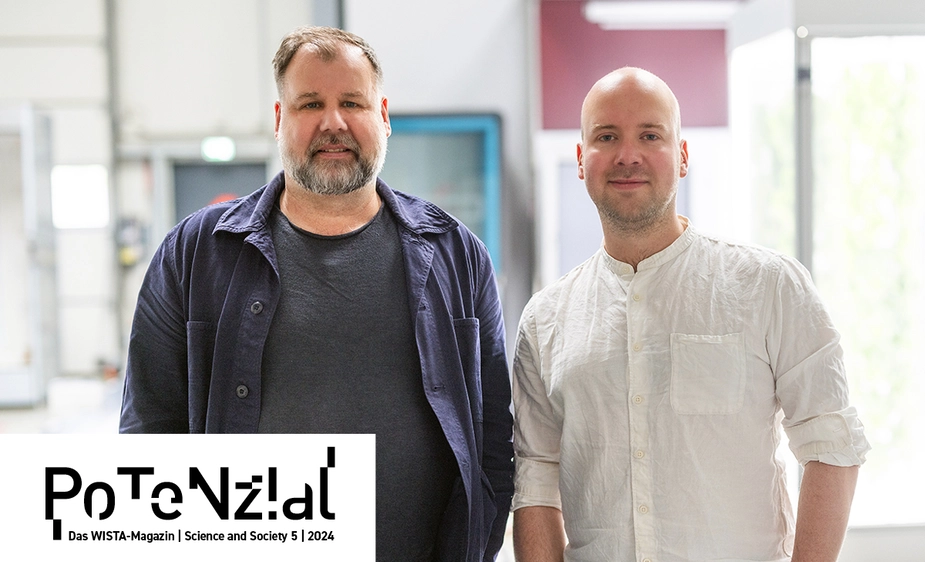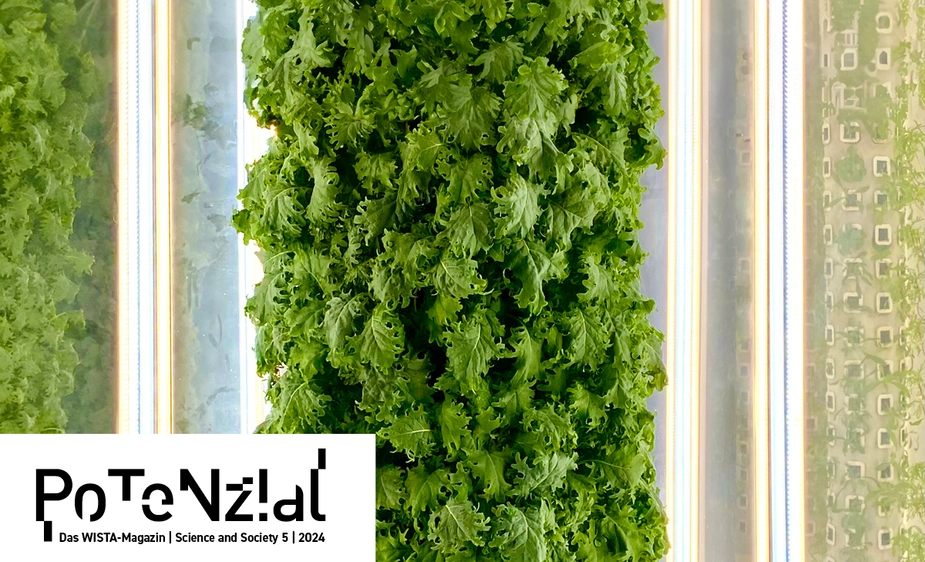The future of agriculture is being grown in a cupboard
Lite&Fog aim at making plant cultivation more sustainable and efficient. Their method allows for the on-demand production of foodstuffs, as well as active ingredients for medicine and cosmetics
Seen from afar, it looks like a green column behind glass. Moving closer, it turns out to be lettuce plants that grow in all directions along the entire length of a thick, round textile tube. Rather than reaching for the sun, the tiny plants stretch out toward the LEDs. Martin Peter opens the door of one of the small cupboards and some light fog escapes. He then unzips the textile covering and even more mist swirls to the outside.
“A solution that is nebulised using ultrasound supplies the roots with nutrients,” he says. The cultivation of plants in the future will no longer require neither soil nor pesticides. Because it is a closed system, says Peter, the method saves 95% water compared to conventional cultivation. “At the same time, there is a 400-fold increase in yield.” The idea came to him when he was working in urban farming. “In places where the soil is bad and space is limited, people mostly use a vertical setup, essentially stacking greenhouse tables," he explains. However, this proved expensive and prone to technical issues.
Peter developed a module that uses light and fine water mist to facilitate plant growth—reflected in the company name Lite&Fog. The prototype was finally ready last year. With this concept, the company won a competition for safe food production in Qatar, among other things. Hardly anything grows in the hot, dry desert climate of Qatar, which is why better concepts are needed to supply the population with fresh vegetables.
“Major global cities like Singapore are also faced with this task,” says Peter. “Our Fogponic system enables high yields in a very limited area, supports up to twelve harvests per year, and minimises transport distances.” The “salad display cases” are currently being optimised at the company headquarters at CleanTech Marzahn, one of Berlin’s so-called “Zukunftsorte”, places generating future innovation. “This environment is very helpful for us as a young company,” says the company’s co-founder. Devices and facilities like printers, laser scanners, or a metal workshop are available nearby and do not have to be purchased separately. Adding to this is the support of IBB, the development bank of the State of Berlin. “We are building hardware, which is more cost-intensive than software and less attractive for investors,” says Peter.
He is convinced that the journey is worthwhile. German expertise in mechanical engineering is in demand internationally, as other customers have been telling him. They come from Israel and the UK and are active in “molecular farming”. This is the technical term for a form of biotechnology: Plants are genetically modified to create certain substances, such as vaccines, antibodies, or so-called growth factors. The ability to stimulate stem cells to create muscle tissue is necessary for the development of “lab-grown meat”. While genetic engineering and meat substitutes from the lab might be viewed critically in this country, people in other world regions are much more open-minded towards it. A large market is taking shape there for Lite&Fog.
In Marzahn, tobacco plants are currently being grown for customers, which could produce molecules worth millions of euros. Similar to their work with salad, Martin Peter and his five employees are dedicated to optimising the system to achieve the highest yields for the plants. In parallel, the output is expected to increase by combining several modules. All said and done, says the founder, despite artificial light and automation, Fogponic’s energy consumption is lower than in conventional plant cultivation because it eliminates the need for tractors, shortens transport routes, and reduces food spoilage due to on-demand production.
According to his vision, this high-tech approach to cultivation will increasingly be taken on by local farmers in the years to come. “Many have their own energy sources, such as solar panels or biogas plants, which provide cheap electricity,” he explains. Since the Lite & Fog concept requires little to no space, farmers can use their land for other purposes. “For example, for near-natural agriculture or climate-friendly reforestation.”
The stable buildings no longer house pigs and cows standing in single file but Fogponic modules providing vegetables to nearby consumers or active ingredients to the biotech and cosmetics industry.
Ralf Nestler for POTENZIAL
Lite&Fog - fogponic farming solutions (liteandfog.com)


